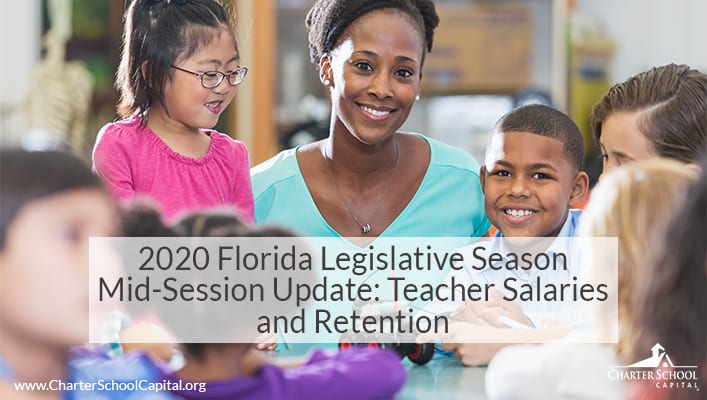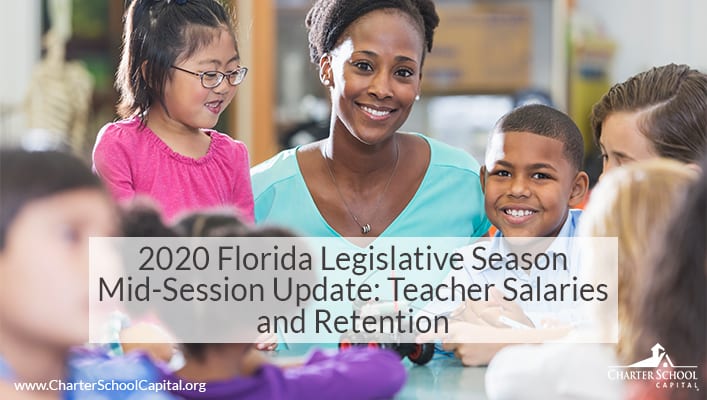 2020 Florida Legislative Season Mid-Session Update: Teacher Salaries and Retention
2020 Florida Legislative Season Mid-Session Update: Teacher Salaries and Retention
In this blog post, we’re examining the complex topic of teacher salaries and how they impact teacher retention, both in the state of Florida and across the nation.
In a series of reports issued in early 2019, the Economic Policy Institute examined the magnitude of the teacher shortage nationwide and the problems schools are having retaining credentialed teachers. The teacher shortage is real, large and growing, and worse than we thought and U.S. schools struggle to both hire and retain teachers.
Who will be left to teach our kids? The teaching profession in K-12 education nationwide is shrinking and it is a matter of simple economics…supply and demand.
In Florida, close to forty percent of new teachers leave the classroom within the first five years in the profession, 15 to 20 percent above the national average. Working conditions play a big factor in their decision—conditions including how much we pay our teachers.
In our blog post last December, we reported on Florida’s Governor’s plan to allocate over $600 million in the upcoming year’s budget to increase the minimum salaries for Florida’s public-school teachers as a way to increase teacher retention. Since then, the Legislature has been working to find a way to achieve the Governor’s goal, or at least get as close as possible.
Explaining education funding in Florida would require a discussion far outside the confines of this blog post but suffice it to say that the state gives school districts specific money for specific purposes, and school districts are not allowed to use funds outside of those designations. Also, the state does not directly fund teacher salaries. They appropriate funds that school districts use at their discretion in collective bargaining negotiations with the teacher unions—which do set teacher pay.
Now that we are at the mid-point in the annual legislative session, both the House and Senate have published their initial budgets, and both have created a new funding silo specifically for teacher pay but each chamber has its own idea of how the money should be allocated.
In their respective budgets, both the House and Senate create a special allocation with the Senate allocating $500 million and the House allocating $650 million for school districts to use to increase the minimum salary for classroom teachers. However, they differ in the manner they are going to allow school districts to use this new funding silo.
The House’s Plan
The House special allocation sets aside $500 million and would allow districts to use their share of that allocation to increase the minimum base salary for beginning full-time teachers and ensure that no minimum base salary on the district’s salary schedule is less than the new minimum set for beginning teachers. If a school district’s salary schedule has no base salary below $50,000 for a full-time teacher, then they can use any remaining funds from their allocation for other instructional personnel and educational support employees.
The additional $150 million in the House special allocation would be available for districts to use for salary increases to teachers who did not receive a salary increase as a result of the district increasing the minimum base salary.
The Senate’s Plan
The Senate offers a different plan allowing districts to use 80% of their allocation to increase minimum salary for full-time teachers to a goal of $47,500. If the district achieves this goal or is already at or above that minimum salary but has not increased salaries by 10%, then they must use the remaining dollars from the 80% allocation to increase salaries by at least 10%. The other 20% of the allocation is to be used to provide salary increases for other instructional personnel including certified prekindergarten teachers.
The final details will be worked out between the two chambers when budget conference meetings begin in a few weeks, but however it turns out in the end, teachers—including teachers in public charter schools—could see more money in their pocket very soon.
